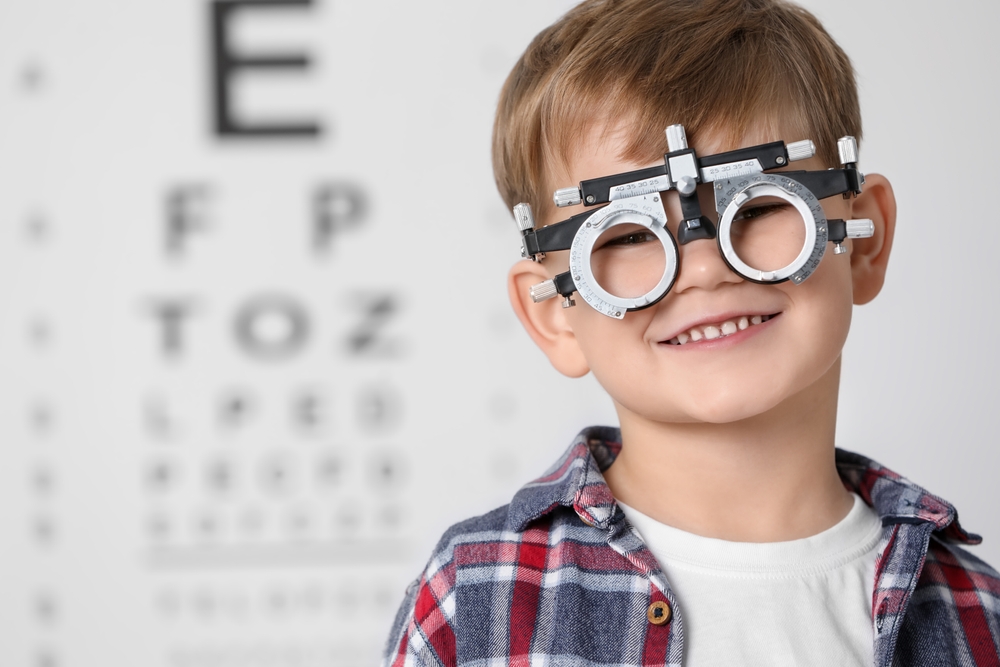
Does Your Child Have Myopia? Signs to Look Out For
Myopia is becoming increasingly prevalent among children. In a world where digital devices and screen time are common parts of daily life, it's no surprise that more children are experiencing vision issues earlier than previous generations. For parents, understanding the signs of myopia can help ensure their child receives the care they need to maintain clear vision and avoid complications down the line.
What is Myopia?
Myopia is a refractive error that causes distant objects to appear blurry while close-up objects remain clear. It occurs when the eyeball grows too long from front to back or when the cornea is too curved. This misalignment causes light to focus in front of the retina rather than directly on it, leading to blurry vision at a distance.
The Importance of Early Detection
Detecting myopia early is crucial because children's eyes continue to grow and change. Unmanaged myopia can progress, potentially leading to higher degrees of nearsightedness that increase the risk of serious eye conditions in adulthood, such as retinal detachment, glaucoma, and macular degeneration.
Signs of Myopia in Children
While children may not always communicate that they’re experiencing vision problems, there are several behavioral and physical indicators that can hint at myopia:
• Squinting to See Clearly: Squinting reduces the size of the eye's aperture, which temporarily sharpens focus. If your child often squints, especially when looking at distant objects, this can be a sign that their distance vision is blurred.
• Sitting Close to Screens or Holding Books Close: Children with myopia may bring screens or books closer to their eyes to see clearly. If you notice your child regularly sitting very close to the TV or holding their tablet or book near their face, myopia may be the cause.
• Frequent Eye Rubbing or Headaches: Eyestrain from trying to focus on blurry images can lead to headaches, especially after prolonged periods of reading or screen time. Eye rubbing is also common when a child’s eyes feel tired or strained.
• Difficulty Seeing the Board at School: If your child’s teacher has mentioned that your child struggles to see the board or loses focus during class, they may have difficulty seeing clearly from a distance.
• Lack of Interest in Outdoor Activities: Spending time outdoors has been linked to a lower risk of myopia development. Children who prefer indoor activities, possibly because they struggle to see things clearly at a distance outside, may be more prone to myopia.
• Complaints About Blurry Vision: Older children may directly express that they can’t see well, especially when looking at far-off objects. Even a single complaint about blurry vision should be taken seriously.
How Myopia is Diagnosed
If you observe any of these signs, it's important to schedule a comprehensive eye exam with a qualified optometrist. During the exam, the optometrist will conduct tests to determine if your child has myopia and assess the extent of their vision impairment. Early diagnosis allows for more options in managing myopia progression.
Myopia Management Options for Children
There are several effective options to slow the progression of nearsightedness in children and young adults, each tailored to different needs and lifestyles.
• Special anti-fatigue glasses are designed to reduce eye strain from prolonged close-up tasks, helping to alleviate discomfort and prevent worsening vision.
• Orthokeratology, or Ortho-K, involves wearing specialized contact lenses overnight to gently reshape the cornea, allowing for clear vision during the day without the need for corrective lenses.
• Atropine eye drops, used in low doses, have been shown to slow myopia progression by relaxing the eye’s focusing mechanisms, making them a simple, daily treatment option.
• MiSight contact lenses, specially designed for children, incorporate unique optics to correct vision while simultaneously slowing myopia progression, making them a popular choice for kids engaged in active lifestyles.
These myopia management methods provide flexible, effective ways to protect vision and enhance long-term eye health.
Schedule a Pediatric Eye Exam with Dunkirk Vision Today
Myopia can be easily managed when detected early. At Dunkirk Vision, we specialize in pediatric eye care and myopia management strategies tailored to your child’s unique needs. By staying aware of the signs and prioritizing regular eye exams, you can help your child enjoy clearer vision and a brighter future.
If you suspect your child may have myopia, contact Dunkirk Vision to schedule your child’s eye exam. Visit our office in Dunkirk, Maryland, or call (443) 964-6730 to discuss myopia management options.








